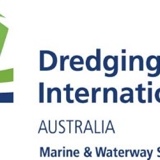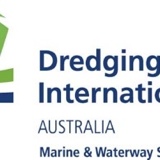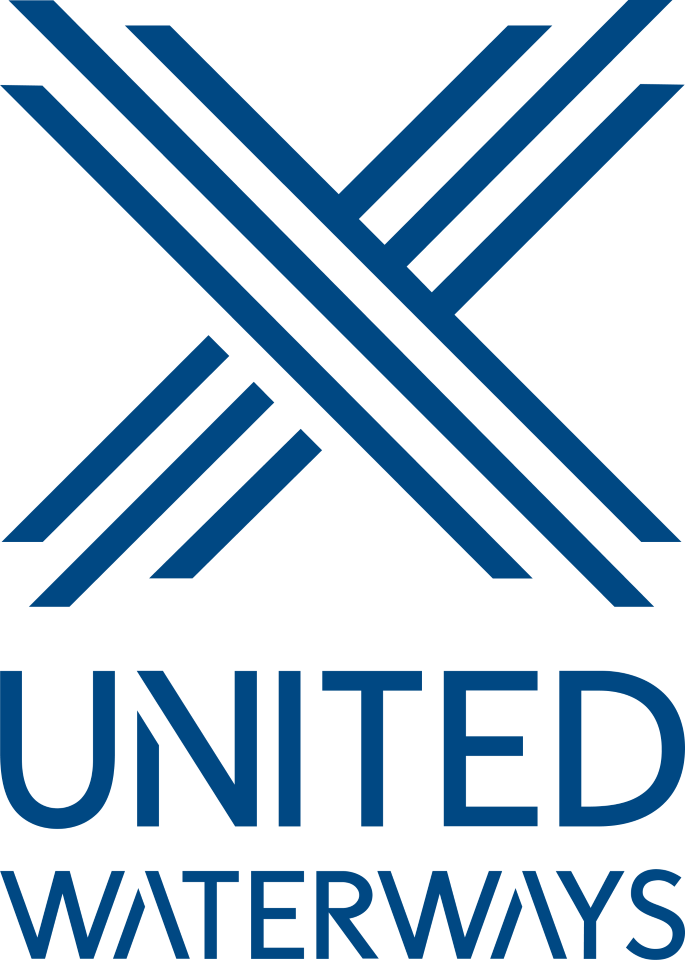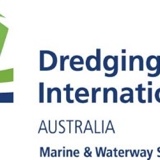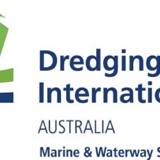Title Page
-
Q.01 Vessel Name
-
Q.02 IMO Number
-
Q.03 Date of Inspection
-
Q.04 Place of Inspection
-
Q.05 Ship Operation at the Time if Inspection
-
Q.06 Superintendent
-
Ship Photo
Superintendent Inspection
-
Report Completed / Part held.
-
What was the date of the last Superintendents Inspection?
-
What was the date of the last Internal Audit?
-
What was the date of the Last PSC?
-
What is the Master's Name and date of signing on?
-
What is the name of the Chief Engineer and date of signing on?
-
What is the name of the Chief Officer and date of signing on?
-
What is the name of the Second Engineer and date of signing on
-
Items for follow up (items answered with No)?
-
Crew Evaluations done and shared (Minimum for Master and Chief Engineer, state which rank and name
-
Items for follow up for next docking immobilization (State which if any)?
-
Last Dry Dock (IWS) Date
-
Next Dry Dock (IWS )Date
-
Last Hull Cleaning Date
-
Is Hull Cleaning needed?
-
Open Conditions of Class (State which and due date)
-
Are there any fuel related Problems?
-
Are there any lub oil related problems?
-
Have engine performances been checked and discussed with the Chief Engineer?
-
Are fuel and energy saving measures in place and if so state which
-
Areas and Spaces Inspected during this Survey.
-
I confirm that no item inspected during this audit requires immediate rectification prior to sailing or cargo operations.
-
Vessel Superintendent
Vessel Superintendent Inspection
-
1.01 Was the last Risk Assessment checked and found to be in line with company Instructions?
-
1.02 Was the last Enclosed Space Entry Permit checked and found in line with company instructions?
-
1.03 Was the last Permit to work checked and found to be in line with company instructions?
-
1.04 On the minutes of the last shipboard safety meeting minutes has there been a review of outstanding and additional items?
-
1.05 Has there been regular safety inspections conducted? Are there any items that require attention / improvement?
-
1.06 Has Safety Management System implemented on board and actively practiced?
-
1.07 Is personal protective equipment (PPE) provided as required and being actively worn?
-
1.08 Are smoking regulations posted and being adhered to and are smoking areas adequately identified.
-
1.09 Is all lose equipment on deck and in the engine room properly secured?
-
1.10 Are ISPS procedures adequately followed ( deck watch, gangway notice and controlled access, locked doors where required?
-
1.11 Have drills been witnessed and lessons learnt reviewed with the staff? State which drill and remarks, if any. Are Drill intervals inline with SOLAS requirements. Records of previous drills should also be verified for consistency.
-
1.12 Is gas and electric welding equipment in good condition (Fixed piping, flash back arrestors, gas cylinders and isolating valves)?
-
1.13 Have you received familiarisation (If sailing with the vessel) Have you been provided with emergency equipment (lifejacket, immersion suit and BA set) and was a lifeboat assigned to you?
-
1.14 Is the engine room equipment such that it can be operated in unmanned mode? if, not is there a procedure in place to keep the engine room manned?
-
1.15 Has the Chief Engineer written his own standing orders and are night orders being completed?
-
1.16 Have the watch engineers countersigned the Chief Engineers standing orders and are night orders being completed?
-
1.17 Are there adequate procedures to prevent uncontrolled entry into the engine room?
-
1.18 Is the dead man alarm, where fitted in good order and used as required?
-
1.19 Is the engine room log book being adequately maintained?
-
1.20 Is there a procedure to start Critical Equipment?
-
1.21 Is there ships specific procedure to switch over from HFO to MGO and vice versa for main engine, auxiliary engines and boilers?
-
1.22 Are fuel lubricating and hydraulic oil testing results properly filed?
-
1.23 Are detailed bunker transfer instructions available and are the staff aware of the hazards of H2S?
-
1.24. Are clear starting instructions for the emergency generator readily displayed?
-
1.25 Has the emergency diesel generator been tested weekly as per the companies instructions and was it tested under load?
-
1.26 Is the emergency generator reserve fuel oil tank provided with sufficient fuel?
-
1.27 Is the floor and deck insulation / matting provided to the front and rear of medium power (i.e 220v and above) electrical switchboards and is it in satisfactory condition?
-
1.28 When was the last inspection of LSA equipment and have all outstanding deficiencies been properly closed out?
-
1.29 How many Near Misses have been reported in the last 30 days and how many thereof remain open? Provide details if any.
-
1.30 How many incidents have been reported in the last 30 days and how many thereof remain open? Provide details if any.
-
1.31How many Accidents (LTI) have been reported in the last 30 days and how many thereof remain open?
-
1.32 How many non conformities have been reported in the last 30 days and how many thereof remain open?
-
1.33 Report any noteworthy incidents / accidents / non conformities here:
-
1.34 Are USB ports on computers and machinery (Bridge and Engine Room) protected against unauthorised use and are stickers / notes provided that only approved / formatted USB sticks may be used?
-
1.35 Is the Management of Change process being used onboard and properly followed as applicable?
Maintenance and Inventories
-
2.01 Is the inventory up to date and is the crew maintaining records accordingly? If not what is the planning?
-
2.02 Are all critical spare parts onboard? If not are they ordered and when will they be delivered?
-
2.03 Is all critical maintenance completed and reported in a timely manner? Is there any overdue critical maintenance, and what is the reason?
-
2.04 If CBM (Condition Based maintenance - e.g oil analysis or vibration monitoring) has been introduced onboard, is th system followed and fully understood by all crew members involved?
-
2.05 Are breakdowns reported as unscheduled maintenance (Including bridge, engine and cargo)?
-
2.06 Percentage of Critical Maintenance Overdue. %
-
2.07 Percentage of Maintenance Overdue. %
-
General Remarks if any:
Certification
-
3.01 Are all class and statutory certificates valid and correctly filed?
-
3.02 Are all other certificates (safety equipment annuals etc) valid and correctly filed?
-
3.03 are all certificates harmonised? If not please comment on which one (eg IOPP Renewal)
-
3.04 Is retrofitting of a ballast water treatment system applicable and what is the due date?
-
3.05 Last thickness report available (date)? Areas of concern for the next dry dock
-
3.06 Last dry dock report available? Areas for concern for the next docking?
-
3.07 There are no open Conditions of Class (or relevant memoranda) if there are, state which and the due date.
-
3.08 Have all non conformances and observations from the last internal ISM - ISPS audit been closed out? If not state which are open and due date.
-
3.09 Are all remarks from the last inspections been closed out? If not please state which and the due date.
-
3.10 Are all remarks from the last PSC Inspections have been closed out? If not state which and the due date.
-
3.11 Have all remarks from the last Superintendent vessel visit been closed out? If not state which and the due date.
-
General Remarks:
Energy Efficiency:
-
4.20 Is the SEEMP up to date, specific for the type of vessel and used as an active document?
-
4.21 Are fuel and energy saving measures in place? And is state which.<br>
Hull and Decks
-
4.01 Are there records of regular inspections of cargo and ballast tanks, void spaces, trunks and cofferdams properly maintained? Verify for consistency and cross check with Enclosed Space Entry Permits>
-
4.02 Is the vessel free from structural defects? As far as can be seen (visible parts of the hull, decks, superstructure and engine room).
-
4.03 Were any Enclosed Spaces internally during the visit? and if so, what were the findings
-
4.04 Is the general condition, visual appearance and cleanliness of the weather decks satisfactory?
-
4.05 Do decks in working areas have clearly identified non-slip surfaces?
-
4.06 Is the crew working as per a ships specific cosmetic maintenance plan for weather decks?
-
4.07 Is the paint room in good condition and kept clean, having sufficient stock for normal maintenance?
-
4.08 Is the general condition of service pipe work (including clamps and supports) satisfactory and is it free from significant corrosion and pitting and soft patches and other temporary repairs?
-
4.09 Are deck openings and manholes in good condition (Including securing arrangements) Are all ballast tank manholes adjacent to fuel oil tanks equipped with a possibility to detect oil on the surface?
-
4.10 Is the general condition, visual appearance and cleanliness of the superstructure satisfactory?
-
4.11 Are accommodation ladders, gangways, pilot ladders and pilot hoists where fitted in good order and fully certified.
-
4.12 Have all watertight doors been tested locally and remotely and are alarms working properly?
-
4.14 General Remarks:
Cargo Pump Room & Cargo Tank
-
5.01 Is the cargo pump room in clean and well-lit condition?
-
5.02 Is the cargo and stripping pump running in good condition and no leaking visible?
-
5.03 Is the cargo pipeline in the pump room in good condition, no traces of leakage, no severe rusting or wastage and pipes are securely clamped down?
-
5.04 Cargo pump emergency stop system in good order and record of regular testing available?
-
5.05 Is the cargo tanks high level alarm in good working condition? Is it operationally tested?
-
General remarks:
Special Cargo Handling Equipment
-
5.20 Is the cargo hose in good order and annual pressure test available on board?
-
5.21 Is the hose handling crane in good condition and regularly maintained?<br>
-
Gender all remarks if any:
Ventilation and Gas Systems for Cargo Spaces
-
5.40 Is the P/V Valves in good working condition and operational tested?
-
5.41 Was the P/V Valves regularly inspected and was it recorded?
-
5.42 Is the officers know the difference of primary and secondary venting system available on board?
-
5.42 General Remarks if any
Ship Equipment / Manoeuvring Equipment
-
6.01 Is the procedure for change over manual to bridge steering change-over clearly displayed on the bridge and in the steering gear room?
-
6.02 Has the emergency steering gear been tested within the past three months and are the results recorded?
-
6.03 Is the steering gear emergency reserve tank fully charged?
-
6.04 Has an Emergency steering drill been witnessed and debriefing attended?
-
6.05 Is the steering gear compartment well maintained clean and access unobstructed?
-
6.06 Has the steering gear been tested with one pump running? (move the steering wheel from 35 degrees port to 30 degrees starboard, the steering gear rudder must complete this swing within 28 seconds).
-
6.07 Are bow thrusters operational and in good condition?
-
General remarks if any:
Navigation Equipment
-
6.20 Are the vessel manoeuvring characteristics (turning circles) prominently displayed on the bridge?
-
6.21 Is the information regarding minimum keel clearance and squat prominently displayed on the bridge?
-
6.22 Is the navigation equipment in good order? perform random checks.
-
6.23 What are primary and secondary means of navigation (ECDIS Paper)? Is the Annex E of the safety equipment certificate in accordance with the practice onboard? Is the chart portfolio appropriate for the vessels trade?
-
6.24 Has the VDR been checked for correct functioning? (it may alarm in port as not all equipment is switched on, common alarms being the radar and bow thruster)
-
6.25 Has the autopilot been checked? (It commonly has alarms when the steering pumps are switched off and the speed is below 5kts)
-
6.26 Are the gyro's in good working order? (Check heading against chart or ECDIS and check if the repeaters are correct)
-
6.27 Are the magnetic compasses in good working order? (Check for air bubbles and confirm the heading. Are the deviation cards up to date? Are compass lights working and if there is a digital repeater is it correct?
-
6.28 Has the NAVTEX been checked and is it working correctly? (NAVTEX messages are received all day. Each message has an error rate which is an indication on how well the unit is receiving, the error rate should be lower than 5% - if no error rate is shown then it is 0%
-
6.29 Have the navigation lights been tested and are they in good working order?
-
6.30 Has the course recorder been checked for accurate recording and is the location (on paper) correct?
-
6.31 Has the BNWAS been tested for both stages?
-
6.32 In the case of double ECDIS, is there a procedure in place to only update one unit at a time? (24 hours in between to avoid double ECDIS failure due to corrupt updates).
-
General remarks if any:
Communication Equipment
-
6.40 Is the GMDSS maintenance certificate onboard and valid?
-
6.41 Is the satellite EPIRB properly armed and labelled correctly and inspected in accordance with the manufacturers requirements?
-
6.42 Are radio emergency batteries in a satisfactory condition and fully charged? Is the battery locker equipped with the necessary PPE?
-
General remarks if any:
Anchoring and Mooring Equipment
-
6.50 Specification of mooring wires / rope including MMB, Certification onboard.
-
6.51 Are mooring ropes / wires MBL less than the bollard and mooring equipment SWL?
-
6.52 Are certificates and inspection reports available for mooring ropes and wires and are they tagged accordingly?
-
6.53 Are mooring lines secured and stowed neatly, either on winches or for mooring?
-
6.54 Are mooring wires, ropes and synthetic tails in good order?<br>
-
6.55 Are mooring tails if any replaced every 18 months?
-
6.56 How many mooring ropes / wires will have to be purchased in the coming twelve months?
-
6.57 When was the last winch brake test and is the correct equipment / procedure in place? What is the setting of the brakes?
-
6.58 Are mooring winches including hydraulic motors and foundations in good order?
-
6.59 Do brake linings, drums and pins appear to be in good order?
-
6.60 Are emergency towing arrangements readily available for deployment forward and aft?
-
6.61 Are windlass, anchors, chain stoppers, locking bars and cables in a satisfactory condition and operating effectively?
-
6.2 Is there any damage in way of the forward plating due to slamming or stowing of the anchors?
-
6.3 Are lashing arrangements in a satisfactory condition?
-
6.64 Are bitter end securing arrangements unobstructed and outside the chain locker? (Sledge hammer stowed in the vicinity).
-
6.65 when were the the anchor chain cables last calibrated and is any renewal expected during the next dry dock (and if so how many lengths)?
-
General remarks if any:
Lifesaving Equipment / Rescue Equipment / David Systems
-
7.01 Are lifeboats, including their equipment and launching mechanisms in good order (including Davits, portable equipment, food and water, limit switches, etc)
-
7.02 Have lifeboats been inspected this visit and what was the scope?
-
7.03 Are fail safe hooks provided or alternatively FPD in place? Is the crew familiar with the system?
-
7.04 Is the pilot ladder in good condition?
-
7.05 Is the international shore fire connection readily available externally and is the location clearly marked?
-
7.11 Are life rafts in good condition and do they have a valid certificate? Is the hydrostatic release mechanism in good order? What is the due date for exchange / inspection of the life rafts?
-
7.12 General remarks in required.
Accommodation / Galley and Sanitary Systems
-
7.30 Are all alleyways free of obstructions and are exits clearly marked?
-
7.31 Is the accommodation clean and tidy and free of vermin and cockroaches?
-
7.32 Are public spaces, including smoke rooms, mess rooms, food handling spaces, refrigeration spaces, galleys and pantries clean, tidy and hygienically satisfactory?
-
7.33 Is the floor covering in public spaces satisfactory?
-
7.34 Is the furniture in the public spaces properly maintained and in a satisfactory condition?
-
7.35 Are laundries free of accumulation of clothing that could constitute a fire hazard?
-
7.36 Is the ships hospital clean and tidy and ready for use?
-
7.37 Is the ships hospital bedding area (for survivors) clean and tidy and ready for use?
-
7.38 Is the level of accommodation and public space lighting satisfactory?
-
7.39 Is the condition of electrical equipment in the accommodation satisfactory?
-
7.40 Is the condition of welfare equipment such as TV sets, radio, video in a satisfactory condition and free of hazard?
-
7.41 Are personnel alarms in refrigerated spaces in good order?
-
7.42 Have refrigerated room temperatures been checked and found satisfactory? State the temperatures.
-
7.43 Have the freezer / chiller / fridge temperatures been checked and found satisfactory? State the temperature.
-
General remarks if any:
Machinery Main Components
-
8.01 Are hot surfaces, particularly Diesel engines free of any evidence of fuel, diesel and lubricating oil?
-
8.02 Is lagging and insulation in good condition and free from oil?
-
8.03 Is the cooling water treatment being followed and have records been checked and found okay?
-
8.04 For ships built after the 1st of January 2000, is a technical file kept and logged properly?
-
8.05 Have engine performances been checked and discussed with Chief Engineers? Are there any abnormalities?
-
8.06 Are any fuel saving measures in place with regard to energy management?
-
General remarks if any
Main Engine
-
8.60 Are the Main Engine(s) in good running condition and no leaking found?
-
8.61 Are the M/E fitted with necessary protective guard?
-
8.62 Is the service history up to date?
-
General remarks if any
Auxiliary Engines
-
8.70 Are the Auxiliary Engine(s) in good condition and no leaking found?
-
8.71 Are the A/E fitted with necessary protective guard?
-
8.72 Is the service history up to date?
-
General remarks if any
Propeller, Shaft & Transmission
-
8.80 Is the stern tube system free of leakage and are oil samples satisfactory?
-
General remarks if any
Systems for Machinery Main Components
-
9.01 Are bunker lines on deck and in the engine room in good condition? When was the last pressure test (if applicable)
-
9.02 Are purifier rooms and fuel lubricating oil area ventilated and clean?
-
9.03 Are purifiers in good condition?
-
9.04 Are any problems reported from changing over between HFO and MGO or vice versa?
-
9.05 Have there been any recent fuel related problems?
-
General remarks if any
Lube Oil Systems
-
9.20 Any Problems?
-
9.21 Are Lub Oil samples being taken and analysed on a regular basis and in accordance with makers advice?
-
General remarks if any
9.30 Cooling Systems
-
9.30 Cooling Systems
Compressed Air Systems
-
9.40 Condition?
-
9.43 Is a deck compressor installed and if so is it in good condition?
-
9.44 Is the air dryer in good condition?
-
9.45 Are compressed are piping and associated valves in good condition?
-
General remarks if any
Bilge and Oily Water Separator
-
10.01 Are the engine room bilge and oily water pumping and disposal arrangements in good order?
-
10.02 Is the oily water separator in good order and has the 15ppm monitor been tested?
-
10.03 Are specific warning notices posted to safeguard against the accidental opening of the overboard discharge valve from the oily water separator and has the overboard valve been secured?
-
10.04 Is the vessel free from illegal / unapproved connections (Magic pipes) directly?
-
When was the bilge alarm last tested and is it working satisfactorily?
-
General remarks if any
Ballast Water System and Management
-
10.11 Which system is used for ballast water management (exchange or treatment plant)?
-
10.12 Have records of ballast water exchange been properly maintained onboard?
-
10.13 Are sample / inspection covers installed on ballast tank manholes adjacent to fuel oil tanks?
-
10.14 Are all overboard valves in good condition, holding and free of cement box?
-
10.16 Are ballast pumps in good working conditions?
-
General remarks if any
Fire detection and Fighting System
-
10.20 Are fire mains, pumps, hoses and nozzles in good order and available for immediate use?
-
10.21 Are fire detection and alarm systems in good order and tested regularly? Carry out some random tests for smoke detectors and state which have been tested?
-
10.22 Is the emergency fire pump in full operational condition and are starting instructions clearly displayed? Has it been tested?
-
10.23 Are accommodation and ventilation emergency stops in good order and clearly marked to indicate the spaces they serve? Are fire flaps in good order and clearly marked to indicate the spaces they serve? Test some flaps and emergency stops at random and report the ones that have been tested.
-
10.24 If fitted with CO2 / Inert systems, is everything properly connected? When have the flexible hoses been exchanged for the last time and when was the last hydrostatic test of the CO2 Cylinders.
-
General remarks if any
Electrical Systems
-
10.30 Have records of megger / insulation tests been checked during this visit?
-
General remarks if any
Garbage and Waste Control
-
10.51 Are waste receptacles constructed of non-combustible material?
-
10.52 Does the vessel have a garbage management plan and has garbage been handled and disposed of in accordance with MARPOL?
-
10.53 Has the garbage record book been correctly completed?
-
10.54 Are Chemicals properly stowed and are Material Data Sheets available?
-
10.55 Are means readily available for dealing with small oil spills?
-
10.56 Is a suitable containment fitted around hydraulic and other deck machinery?
-
10.57 Are unused cargo and bunker pipeline manifolds fully bolted and are all drains and vents and unused gauge system's suitably blanked and capped?
-
10.58Is the sewage system in good working condition?
-
General remarks if any
-
Inspection Report
-
Masters Signature
-
Inspectors Certificate






